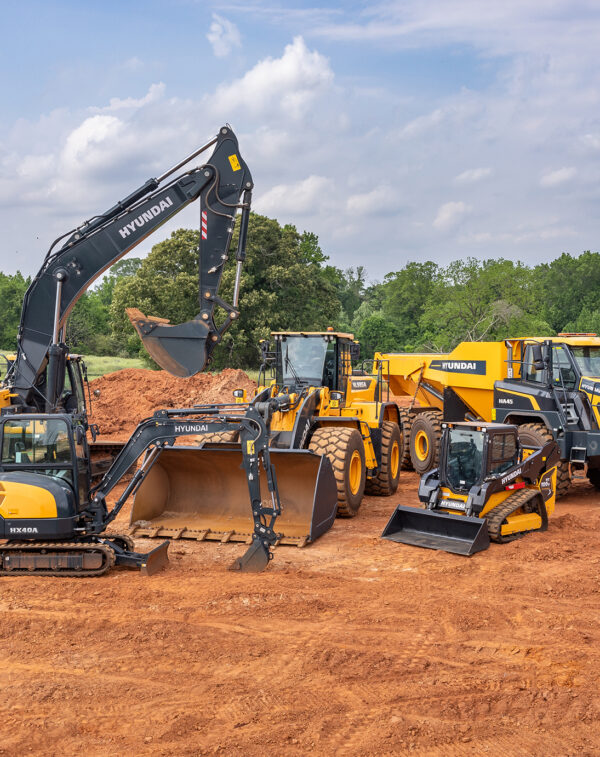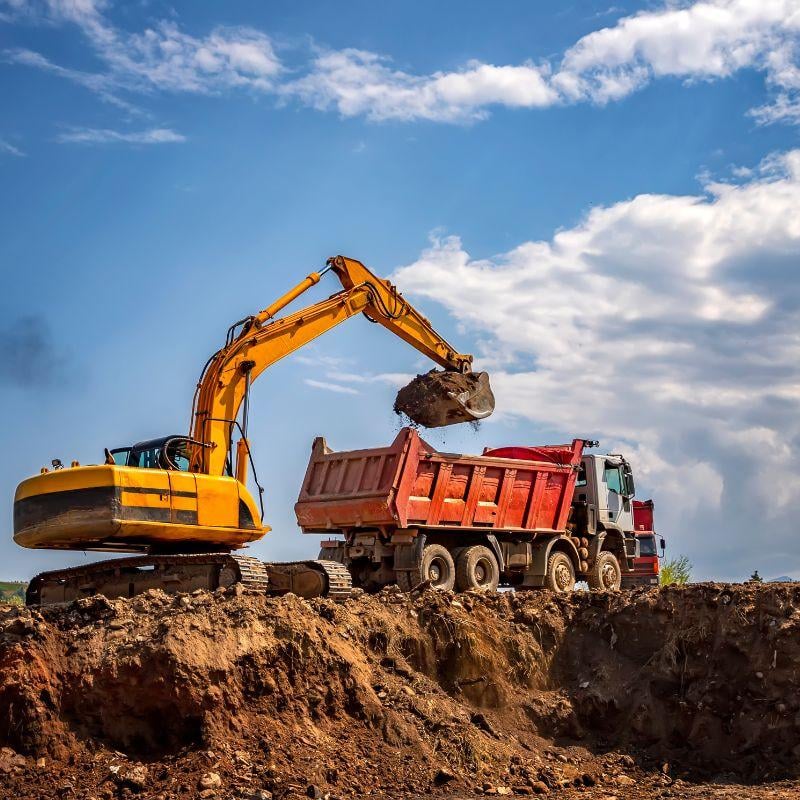Forklift Rental in Tuscaloosa, AL: Versatile Lifting Solutions for Your Needs
Forklift Rental in Tuscaloosa, AL: Versatile Lifting Solutions for Your Needs
Blog Article
Discovering the Financial Benefits of Renting Building Devices Contrasted to Owning It Long-Term
The choice in between renting and owning construction equipment is essential for economic management in the industry. Leasing deals prompt price savings and operational versatility, enabling firms to allocate resources extra successfully. On the other hand, ownership comes with considerable long-term monetary commitments, including maintenance and depreciation. As specialists consider these choices, the influence on cash circulation, job timelines, and technology access becomes significantly substantial. Recognizing these subtleties is necessary, particularly when thinking about exactly how they align with specific project demands and economic methods. What elements should be prioritized to ensure optimum decision-making in this facility landscape?

Cost Contrast: Leasing Vs. Owning
When evaluating the economic ramifications of possessing versus leasing construction tools, a detailed expense comparison is essential for making educated decisions. The choice in between having and renting can dramatically affect a company's lower line, and understanding the linked expenses is essential.
Renting out construction devices generally includes reduced upfront costs, allowing companies to designate resources to various other operational needs. Rental expenses can collect over time, possibly going beyond the expenditure of ownership if devices is required for an extensive duration.
Alternatively, possessing construction equipment requires a substantial preliminary financial investment, along with ongoing expenses such as depreciation, funding, and insurance. While possession can cause long-lasting cost savings, it likewise binds capital and may not provide the same degree of adaptability as leasing. Furthermore, owning equipment demands a dedication to its application, which might not constantly line up with job demands.
Ultimately, the decision to rent or possess should be based upon a comprehensive evaluation of certain job needs, monetary capacity, and long-term critical objectives.

Maintenance Duties and expenses
The choice between having and renting out construction equipment not only involves financial considerations however likewise encompasses ongoing maintenance expenses and responsibilities. Possessing tools calls for a substantial dedication to its upkeep, that includes routine inspections, repairs, and possible upgrades. These duties can swiftly collect, causing unforeseen costs that can stress a spending plan.
On the other hand, when renting tools, maintenance is usually the obligation of the rental company. This setup permits contractors to avoid the economic problem related to damage, along with the logistical difficulties of scheduling fixings. Rental contracts typically consist of arrangements for maintenance, suggesting that contractors can concentrate on finishing projects as opposed to bothering with tools condition.
In addition, the diverse series of tools offered for rental fee enables business to pick the latest designs with innovative technology, which can improve performance and productivity - scissor lift rental in Tuscaloosa, AL. By choosing for services, businesses can avoid the long-lasting liability of devices devaluation and the connected upkeep frustrations. Eventually, examining upkeep expenses and duties is crucial for making an informed choice about whether to rent out or own building and construction equipment, substantially impacting overall task prices and functional efficiency

Depreciation Influence on Possession

A considerable variable to take into consideration in the decision to own construction devices is the effect of devaluation on general possession prices. Devaluation stands for the decrease in worth of the devices gradually, affected by variables such as use, damage, and innovations in modern technology. As equipment ages, its market price diminishes, which can considerably affect the owner's financial position when it comes time to trade the equipment or market.
For construction firms, this devaluation can translate to significant losses if the devices is not utilized to its greatest capacity or if it lapses. Owners should account for devaluation in their monetary forecasts, which can result in greater general prices contrasted to renting. In addition, the tax implications of devaluation can be complex; while it might supply some tax advantages, these are commonly offset by the truth of decreased resale worth.
Eventually, the worry of depreciation highlights the importance of comprehending the lasting monetary dedication associated with having building and construction devices. Firms must very carefully review how commonly they will utilize the tools and the potential monetary effect of devaluation to make an informed decision regarding possession click here for more info versus renting out.
Financial Versatility of Leasing
Renting out construction devices uses substantial financial flexibility, enabling business to allot resources much more effectively. This versatility is specifically critical in an industry characterized by varying job needs and differing work. By choosing to lease, organizations can stay clear of the significant resources outlay needed for purchasing equipment, maintaining cash circulation for various other functional demands.
In addition, renting equipment enables companies to customize their tools selections to details task needs without the lasting dedication linked with possession. This indicates that organizations can conveniently scale their tools inventory up or down based on awaited and existing job demands. Subsequently, this adaptability reduces the risk of over-investment in machinery that may end up being underutilized or outdated in time.
An additional financial benefit of renting out is the possibility for tax obligation benefits. Rental repayments are typically thought about operating costs, permitting immediate tax obligation deductions, unlike depreciation on owned and operated devices, which is topped a number of years. scissor lift rental in Tuscaloosa, AL. This immediate expenditure recognition can further boost a company's cash money setting
Long-Term Task Factors To Consider
When examining the long-term demands of a construction business, the choice between having and renting devices becomes a lot more complex. Secret factors to think about consist of job period, frequency of usage, and the nature of upcoming jobs. For projects with extensive timelines, purchasing devices might seem useful due to the capacity for reduced overall expenses. However, if the devices will certainly not be utilized regularly throughout projects, having might result in underutilization and unneeded expense on maintenance, storage, and insurance policy.
The building and construction sector is evolving swiftly, with brand-new devices offering enhanced performance and safety and security attributes. This versatility is especially advantageous for organizations that manage diverse projects calling for various types of tools.
In addition, economic security plays a crucial click site function. Owning devices typically requires considerable capital financial investment and depreciation worries, while renting permits more foreseeable budgeting and cash circulation. Ultimately, the option between having and renting out ought to be straightened with the tactical purposes of the construction organization, taking into account both existing and anticipated project needs.
Verdict
In verdict, renting out construction equipment offers substantial financial benefits over lasting possession. Inevitably, the choice to rent out instead than own aligns with the dynamic nature of construction projects, allowing for adaptability and accessibility to the most recent tools without the economic problems connected with ownership.
As equipment ages, its market value lessens, which can significantly influence the proprietor's monetary setting when it comes time to trade the equipment or market.
Renting out building equipment offers substantial economic versatility, allowing firms to designate resources more successfully.In addition, leasing equipment makes it possible for business to tailor their tools options to particular job requirements without the long-lasting commitment linked with possession.In conclusion, renting building and construction devices offers significant monetary second hand construction equipment benefits over long-lasting ownership. Ultimately, the choice to rent instead than own aligns with the vibrant nature of construction jobs, allowing for versatility and access to the most current devices without the economic concerns linked with ownership.
Report this page